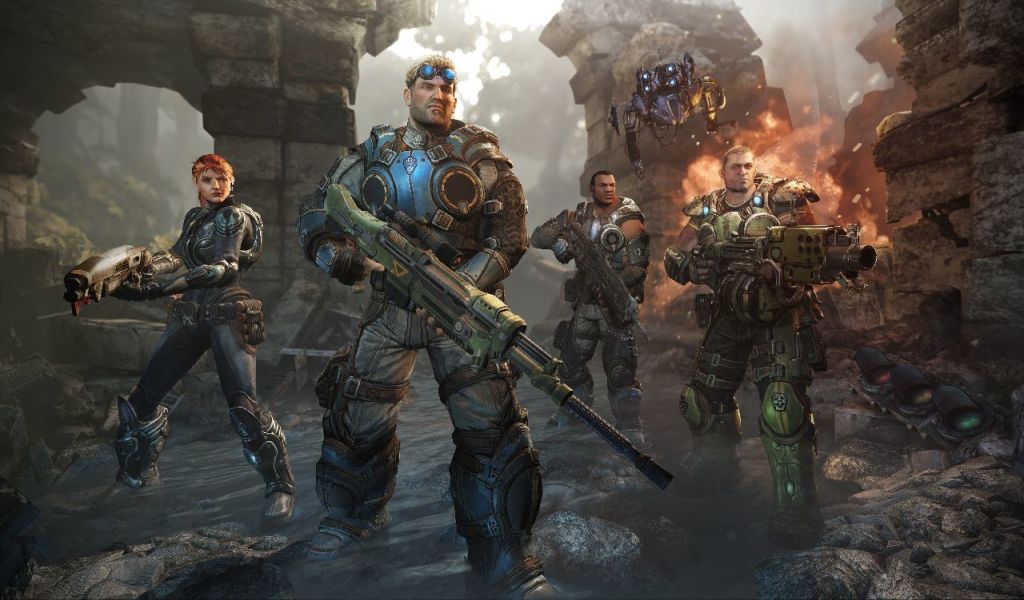After sitting down with Epic Games and People Can Fly this past year at E3, I was unbelievably excited about Gears of War: Judgment. I was excited to be able to play a Gears game starring my favorite character, I looked forward to the changes they discussed, such as random spawn system and the Declassified mission settings. I couldn’t wait to see why Baird lost his officer rank, which rolled into why he was initially so angry towards Marcus when his rank was reinstated after his time in the Slab. After being in such an unhappy gaming slump since November, I was overly eager to play a game I was honestly excited about. And then came the utter disappointment.
From what I understood about the Declassified mode of the missions, I believed this setting would unlock some hidden tidbit to Baird’s story. I was not expecting the mode to simply add on an extra set of parameters to make the mission more difficult. On the one hand, I enjoyed the Declassified settings because it forced me to use weapons I normally do not, which was fun. On the other, it added absolutely nothing to the story.
The story itself was done an awful disservice by the length of each mission. Each mission, at its longest, was ten minutes. Most were less than five minutes, and at the end of each mission, you were given a rundown of your performance, much like in an arcade version of the game–think Bayonetta or DmC: Devil May Cry. This wouldn’t have bothered me so much if the missions weren’t so short. Since the missions were so short, breaking them up with a report card really broke up the story, killing it of all chances really be anything cohesive. It honestly made the story in the first Gears of War look absolutely stellar.
In addition, what happened to Baird and Cole’s characters? Cole was virtually silent the entire game, which is completely not like him. There were hardly any funny quips from him, and I can say the same about Baird, save one comment he uttered that stood out. Sofia and Paduk had far more lines, far greater character development, which is fine on the hand that they are brand new characters, but they completely overshadowed Baird and Cole. In the other games, Baird and Cole were just as well developed as Marcus and Dom.
Also, I have to wonder if the writers of the game bothered to read any of Karen Traviss’ books, as her books and even the previous games, made it QUITE clear that Baird had a huge problem with women serving in combat. And yet in Judgment, he is overly nice to Sofia. Not one crass comment, not one sexist comment, and he never made fun of her. If you’ve played any of the prior games or read the books, you know that’s not Baird’s personality, whether it’s with men or women.
The best part of the entire game was the Aftermath campaign that unlocks after you obtain 40 stars in the main campaign. This campaign took place during Gears of War 3, when Baird, Cole, and Carmine separated from the rest of the group to hunt down a boat around Act III. Aftermath completely reverted back to the original Gears formula of gameplay, and was almost instantly more enjoyable. Baird and Cole even transformed back to the sassy characters we’ve grown to love over the first three games.
As a huge fan of the series and of Baird, Gears of War: Judgment was an incredible disappointment to me. If you haven’t bought it yet and are interested in the game, I strongly recommend a rental, as you can easily beat both campaigns in about ten hours time. I’m not going to actively pursue a 4-player team to play it on Insanity, and I doubt I’ll touch the multiplayer. I’d honestly rather play the first game again than Judgment.




Leave a Reply